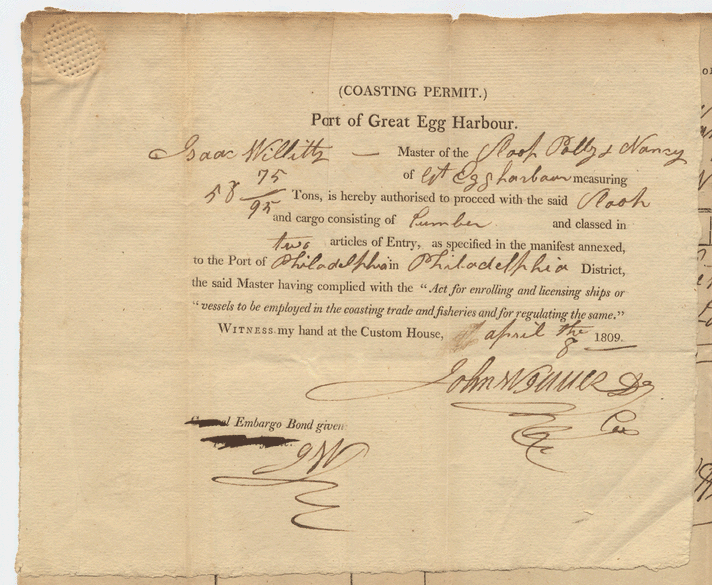
The Coasting Permit was a customs document required to be carried by shipmasters of vessels transporting certain previously imported goods from one U.S. port to another.
They were generally small, undecorated forms, and carried the signature of the issuing customs official. Coasting Permits were authorized by 1790 and 1793 legislation that dealt with licensing and enrollment of American vessels, but these permits were valid for one voyage only, and were used in addition to these other documents.
The master of a ship carrying certain imported goods, such as wine, sugar, and tea (or distilled spirits manufactured in the U.S.) made duplicate Manifests of all the vessel’s cargo. He then delivered them to the collector and swore that, to the best of his knowledge, the goods had been legally imported and all appropriate duties paid. The collector would then certify the oath on the Manifests, and return one to the master along with the Coasting Permit attached, which described the cargo and authorized him to proceed on his intended voyage. Coasting Permits are representative of the many documents and forms used by the United States during the early years of the nineteenth century to protect American markets from illegal importation and transportation of foreign goods.
